In England, the government has been trying to push schools into raising entries in the so-called EBacc subjects through its accountability metrics: the percentage entering and achieving the EBacc, and Progress 8.
This is one reason why subject entries have been changing so much in recent years.
However, another reason why they are changing is that school budgets have become considerably tighter. When this happens, schools need to increase class sizes, which means slashing the GCSE options they offer to students.
So which of these two forces – the accountability metrics, or the budget constraints – has been more important to changes in entries?
England v Wales
We can use the data on Welsh GCSE entries to give us a clue.
Wales is not using the same accountability metrics, but schools there are also experiencing relatively tight budget conditions.
Based on data published by JCQ this morning, the English government’s plan is working in some subjects.
FFT Aspire
If you are a school using FFT Aspire, why not check your results against estimates in Aspire?
Not an FFT Aspire user?
England sees declining religious studies (RS) entries (which we wrote about last year), and rising history and geography entries (which are both EBacc-eligible subjects).
By contrast, RS continues to rise in popularity in Wales, with history and geography seeing declines in entries.
However, language entries continue their inexorable decline in both England and Wales. Whether things are better or worse in England or Wales rather depends on how you treat the second language Welsh GCSE.
Including them means that Wales stays ahead of England on language entries.
However, the decline in French, German and Spanish entries is more substantial in Wales and from a lower base.
If the education ministries in London and Cardiff wants to persuade schools and pupils to reverse this trend, they’ll have to find a way to import some more language teachers and resolve the relative subject difficulty issue that means students tend to get lower grades in languages.
Subject entries continue to decline in non-EBacc subjects in England. Some subjects, such as ICT and RS, are rising in Wales and falling in England.
However, as the chart above shows, entries in most non-EBacc subjects are falling in Wales too, which makes us think that it is budget tightening that is mostly responsible for schools choosing to remove these optional subjects.
Want to receive other results day blogposts by email? Sign up to our mailing list to get notifications about new blogposts, or to receive our half-termly newsletter.

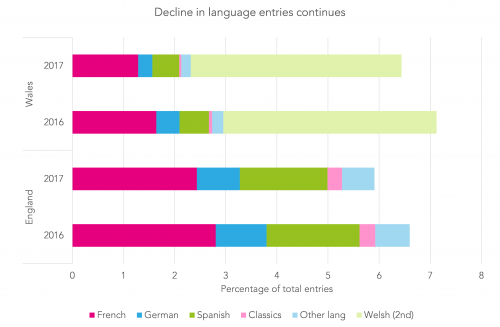
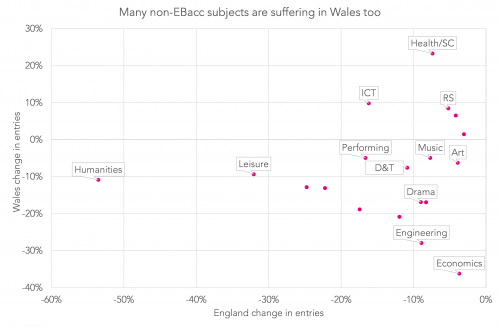

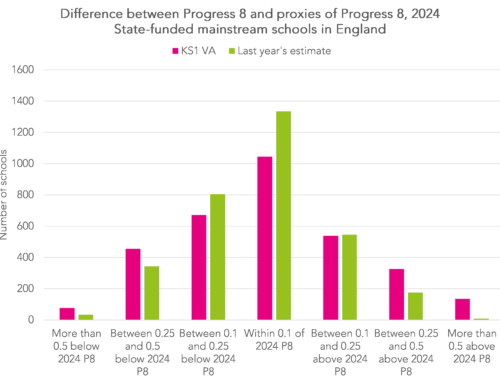
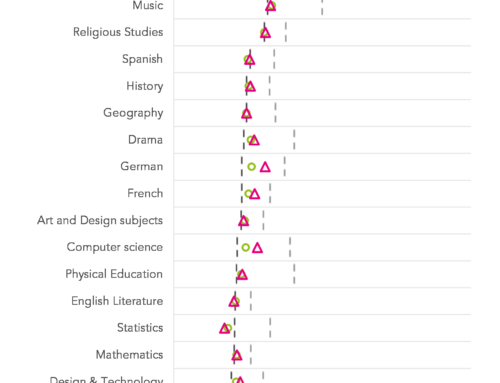
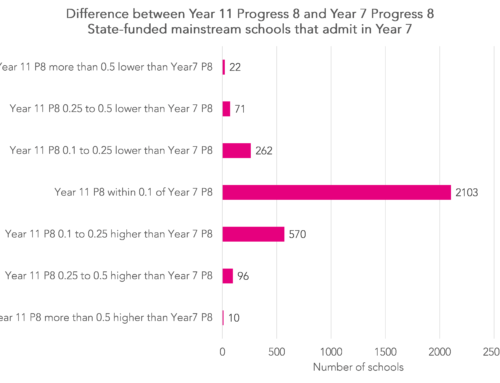
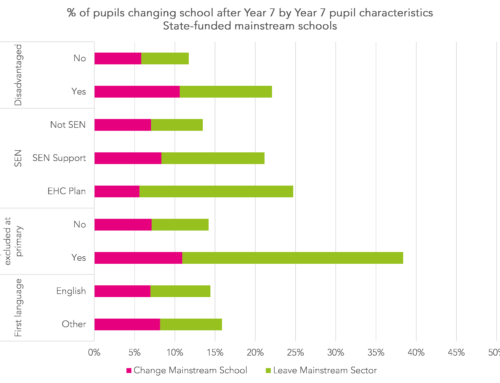
Leave A Comment